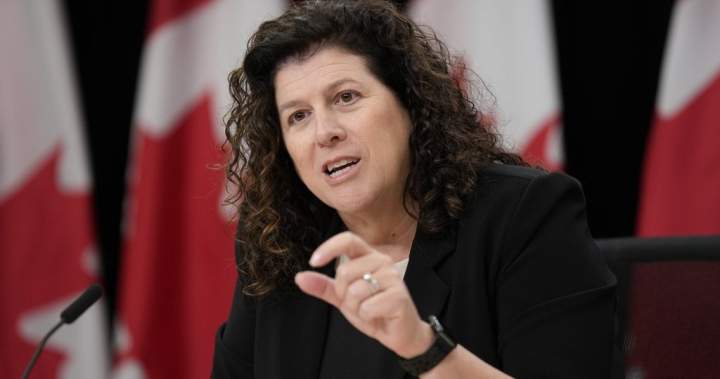As Ottawa tightens its grip on international education, the landscape for students, institutions, and communities across Canada faces profound disruption. Yesterday’s announcement of a comprehensive audit targeting post-secondary institutions hosting international students signals a dramatic shift in federal oversight that many industry insiders saw coming, but few anticipated would arrive with such force.
“We’ve reached a critical juncture where intervention has become necessary,” Immigration Minister Marc Miller told reporters on Parliament Hill. “The integrity of our immigration system cannot be compromised by institutions that fail to provide quality education or appropriate student support.”
The audit, expected to begin next month, will examine over 200 colleges and universities, with particular focus on private institutions that have seen explosive growth in international enrollment since 2021. Immigration, Refugees and Citizenship Canada (IRCC) officials will assess everything from academic standards to student housing accommodations.
For Sunita Patel, an international student from India studying computer science at a private college in Brampton, the news brings mixed emotions. “Many of us pay triple what Canadian students pay, but sometimes don’t get what was promised,” she explained while waiting for a bus outside her campus. “But we’re also worried this might mean fewer opportunities for students like me in the future.”
Her concerns reflect the complex reality behind Canada’s international education sector, which has grown into a $22-billion economic engine. The federal government’s data shows international student numbers swelled from approximately 220,000 in 2015 to over 800,000 by the end of 2023, a growth rate that has outpaced infrastructure and regulatory frameworks.
Provincial education ministers received briefings about the audit last week, according to sources within the Council of Ministers of Education. Ontario’s Minister of Colleges and Universities, Jill Dunlop, issued a statement supporting the federal initiative while emphasizing provincial jurisdiction over education quality.
“We welcome federal partnership in addressing concerns, while maintaining Ontario’s authority over educational standards,” the statement read. “Our government has already begun reviewing private career colleges with high concentrations of international students.”
The timing of this audit follows months of heightened tension between Ottawa and the provinces over international education. Earlier this year, the federal government imposed a 35% reduction in study permits for 2024, citing housing pressures and concerns about program quality at some institutions.
Alex Wong, director of the Canadian Association of International Education Professionals, fears the audit could harm legitimate programs. “There are certainly problems that need addressing, but this broad approach risks damaging Canada’s reputation as a welcoming destination for international talent,” Wong said during a phone interview. “We need scalpels, not sledgehammers.”
Behind closed doors, college administrators are scrambling to prepare for scrutiny. A vice-president at a mid-sized Ontario college, speaking on condition of anonymity, revealed that some institutions derive more than 70% of their operating budgets from international student fees. “If enrollment drops significantly due to tighter regulations, we’re looking at program cuts and potential layoffs,” they admitted.
The audit comes with real teeth. Minister Miller confirmed that institutions found non-compliant could lose their designation to host international students entirely. Officials will examine graduation rates, employment outcomes, and whether programs deliver the educational experience promised in recruitment materials.
For communities like Brampton, Surrey, and Windsor that have absorbed large international student populations, the stakes extend beyond campus boundaries. Housing markets, local businesses, and public services have all adapted to this demographic shift, creating economic dependencies that could unravel under stricter policies.
Municipal leaders have started voicing concerns about potential community impacts. “International students have revitalized our downtown core,” noted Windsor Mayor Drew Dilkens at a recent council meeting. “Any policy changes need to consider economic ripple effects on small businesses and the rental market.”
Statistics Canada data indicates international students contributed approximately $22.3 billion to Canada’s economy in 2022, supporting nearly 200,000 jobs. Critics of the audit worry this economic benefit could diminish precisely when many communities need it most.
However, advocates for reform point to troubling patterns that have emerged. Recent investigations by The Globe and Mail and CBC documented cases where some private colleges functioned primarily as immigration pathways rather than educational institutions. Students reported overcrowded housing, minimal academic oversight, and programs misaligned with labor market needs.
Parliament’s Standing Committee on Citizenship and Immigration heard testimony last month from former students who described paying thousands for credentials that employers didn’t recognize. “The system has been commodified,” said committee chair Jenny Kwan during those hearings. “Students deserve better, and so do Canadian taxpayers.”
The audit represents just one piece of a larger policy recalibration. Sources within IRCC indicate the government is developing new standards for designated learning institutions that will include stricter financial transparency requirements and mandatory student support services.
As federal officials prepare to examine institutional practices, uncertainty looms for current and prospective students. Visa processing times could increase during the audit period, and some institutions may pause international recruitment until standards are clarified.
For communities and campuses across Canada, the coming months will reveal whether this audit represents a necessary correction or an overcorrection. Either way, the era of rapid, loosely regulated growth in international education appears to be ending, replaced by a more cautious approach balancing economic benefits with system integrity.
What remains clear is that international education in Canada stands at a crossroads, with outcomes that will reverberate through campus hallways, community main streets, and provincial economies for years to come.






